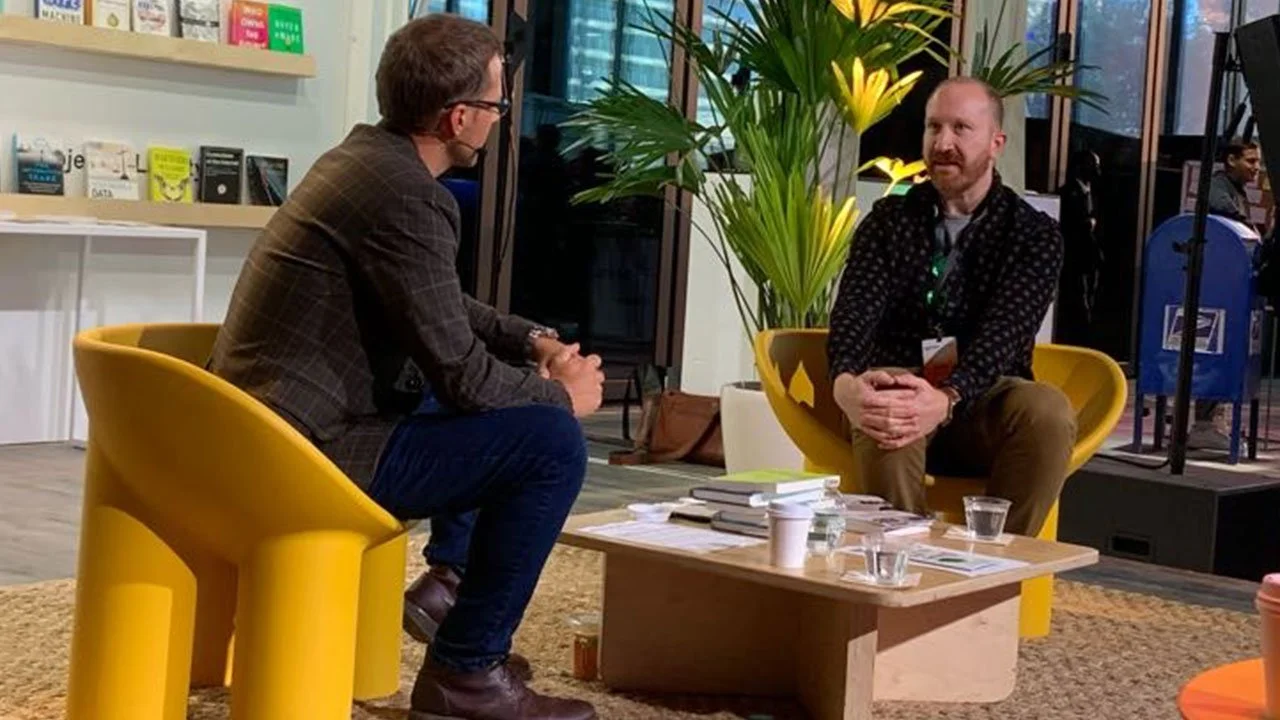All Tech Is Human Library Podcast Series #16 | Jamie Cohen
In the sixteenth conversation of a sixteen-part All Tech is Human Library Podcast interview series, Assistant Professor of Media Studies at CUNY Queens College and Head of Education at Digital Void Jamie Cohen, PhD joins David Ryan Polgar to discuss the importance of memes in the larger tech ecosystem. How can we learn to understand memes and their cultural impact? What role do memes play in a better tech future?Check out the full podcast series here.
About Jamie Cohen, PhD
Jamie Cohen, PhD is an Assistant Professor of Media Studies at CUNY Queens College, the Head of Education at Digital Void, and writer. He founded and formerly directed the New Media program for Molloy University (an internet studies degree) and continue to lead teams of students in immersive digital production design projects in Rome, Italy.
Key Takeaways
Memes as a form of high-impact messaging can serve as an emotional replacement for some, while serving as a mechanism to share extremist views with others.
The graphical communication behind memes can influence consumers towards kinetic action; this is something to consider when we think about the entities drawing on meme culture today.
A better tech future looks like truly integrating trust and safety into a company’s operations and putting this knowledge in the hands of each end user.
Quotes
“So I think the most important thing people need to know about memes is that it's not digital culture it is culture…I call it the ‘cultural surplus.’ It's what we do when we've saturated every type of messaging. Memes appear as like this extra way of communicating to one another. So it's graphical communication.” 1:06 - 1:21
“And the question about commodification and memes is really important because commodification of memes, that means putting them in a commercial space, is a threat to people who feel that the Internet is open and free and supposed to be fluid without having some sort of way of a corporation taking the messaging.” 2:05 - 2:21
“And at that point now what we have is the expansion of memes to dog whistle politics. So they're now embedding violent extremism inside of graphical communication.” 2:43 - 2:52
“It was a way of users finding a way to say something about the way they're feeling deeper down without having to say it. So it's an emotion replacement…it's supposed to be almost like a mask for people to interact with. And that can get scary because it can be co-opted by bad actors who could end up leveraging that into violent situations.” 3:42 - 4:12
“The main energy it contains is to keep following or keep making memes. But because of social media and the way tech industries work with time spent, memes keep people in there. That's their energy. But if you can't keep people in there, you have to load enough messaging in there for people to take direct action.” 5:04 - 5:18
Learn More About Jamie Cohen
Website | Twitter
Credits:
David Ryan Polgar - Moderator
Jamie Cohen, PhD - Interviewee
Unfinished Live - Producers


